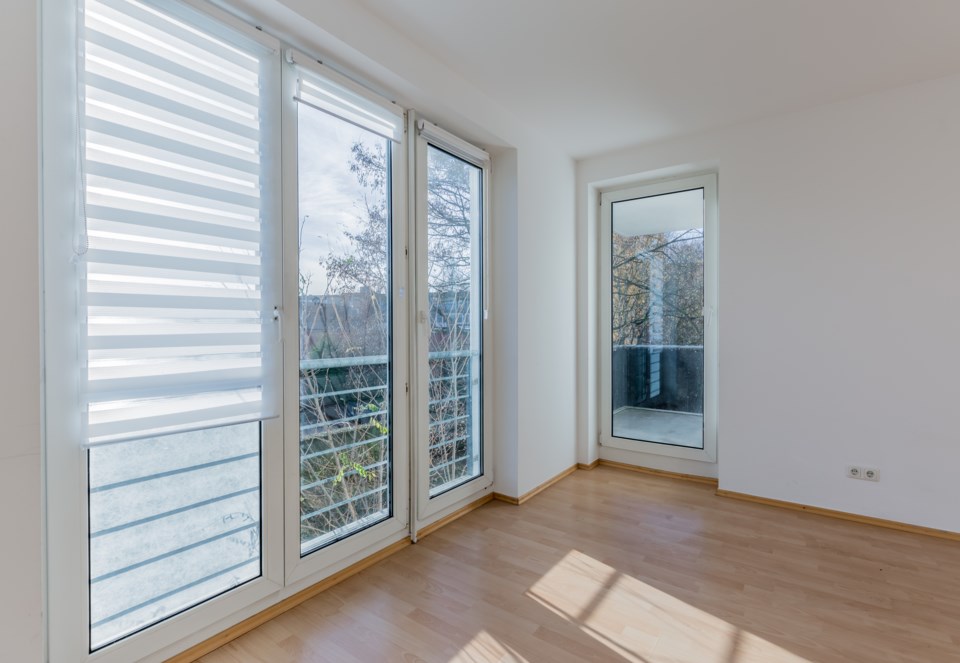Squamish's inclusion within the speculation and vacancy tax jurisdiction is the latest effort from government officials to increase the amount of housing available in town.
However, there are questions about this measure's effectiveness.
As of 2019, the tax has been 2% on a property's assessed value, if the owners are foreigners or satellite families.
That rate is 0.5% for Canadian citizens or permanent residents of Canada who are not members of a satellite family.
The idea is to create a penalty for people who buy properties and let them sit empty.
While a tax rate ranging from 0.5% to 2% can seem rather small when compared with the millions that owners are willing to pay to acquire a property, the director of SFU's city program said that it's made some tangible changes.
"Apparently, it motivated 20,000 people to make [their units] available for rental," said Andy Yan.
Yan said it was a good move for Squamish's mayor to support the town's inclusion in the area where the provincial speculation tax applies.
However, there is a question as to whether the provincial taxes levied in Squamish will actually go to benefit the community.
"What's going to happen to that revenue from those taxes?" said Yan. "For all the taxes that might be generated and created in Squamish, will that be spent in Squamish?"
As for how many properties this will affect in town, Yan said that 36% of all Squamish dwellings are not occupied by their owners. This suggests that they are likely investment properties, which is what the speculation tax is targeting.
Yan arrived at that figure after crunching some Canada Housing Statistics Program numbers.
He suggested that the tax will be enough to discourage marginal speculators from buying property in Squamish, while offering motivation for others who are set on investing in town to put their units on the rental market.
Changes coming in January
On July 20, the provincial government announced an expansion of the Speculation and Vacancy Tax that will apply to Squamish.
The tax was already in place in Metro Vancouver and other major urban centres in B.C.
The change will take effect in January 2023.
"An independent review report of the speculation tax shows it is working in existing areas by helping to keep housing prices and rents lower than they would have been without the tax. The speculation tax, alongside the 2% tax rate for foreign owners and satellite families, has also encouraged the return of approximately 20,000 condo units to the long-term rental market in Metro Vancouver," the release states.
The expansion will include, in addition to Squamish, North Cowichan, Duncan, Ladysmith, Lake Cowichan, and Lions Bay, where there are acute housing shortages.
Residential property owners in the expansion communities can declare and claim an exemption from the tax for the first time in January 2024. Exemptions are available for primary residences, properties with a long-term tenant and under a number of other special circumstances.
The provincial government anticipates that more than 99% of British Columbians will continue to be exempt from paying the tax.
"In 2018, we implemented the landmark speculation and vacancy tax that targeted speculators and quickly helped turn thousands of empty units into homes for people," said Minister of Finance Selina Robinson in the release. "After careful consideration and listening to people and community leaders on speculative real estate concerns in their communities, we're expanding the tax to these additional areas that are facing intense housing pressures."
Squamish's mayor said the inclusion of Squamish was necessary as part of a host of solutions that are needed to tackle our critical housing shortage.
"People, businesses and service providers in Squamish are all facing the critical challenge of housing affordability," said Mayor Karen Elliott, in the release. "Our citizens want to see that we are addressing both the supply side, as well as advocating for demand-side policies that help make housing more attainable. We support a collaborative approach to delivering the homes we need. Squamish is proud to be a partner in the province's efforts to create affordable housing, strategically develop private property, and implement solutions like the speculation and vacancy tax. Together, we can create more stable, attainable and affordable housing."
Homeowners will be able to declare online or by phone with call centre staff. Last year, more than 92% of owners declared online, according to the provincial government.
A speculation tax review report must be produced and made public every five years. The first of these reports was released in June 2022.
Locals can read the Speculation tax review report for themselves.
Learn about how the speculation and vacancy tax works and available exemptions on the provincial government site.



